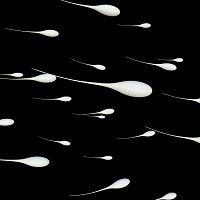Article
Regulatory Proteins in Sperm May Predict Autism Risk
Author(s):
Autism risk may be linked to epigenetic differences in paternal sperm.

Children’s autism risk may be linked to paternal sperm DNA identifiers (epigenetic tags), according to findings from a small study published in the International Journal of Epidemiology.
Researchers from Johns Hopkins Medicine analyzed DNA data from 44 sperm samples in order to test the relationship between paternal sperm DNA and autism risk in offspring, using fathers of autistic children. The paternal participants were part of a larger, ongoing study to assess factors that influence a child prior to their autism diagnosis.
The pregnant mothers are enrolled in the study and already have a child with autism and biological samples were already collected from the mothers, the new babies’ father, and the babies themselves after birth. Sperm samples were collected from the father early in the pregnancy and the researchers followed up with the infants one year after they were born. The infants were assessed for early signs of autism using the Autism Observation Scale for Infants (AOSI).
The sperm samples were analyzed at nearly half a million epigenetic tags on different positions throughout the genome. Then the researchers compared AOSI scores for each child to the likelihood of a tag being in a particular position. There were 193 different sites where the positive or negative epigenetic marker was related to the AOSI scores.
Many of the epigenetic sites were close to genes involved in developmental processes, the researchers said, particularly in neural development, as explained in a press release. The researchers noted that four of the 10 sites most strongly linked to the AOSI score were of particular interest because they represented the closest link to Prader Willi syndrome (a genetic disorder that mimics some behavioral symptoms of autism).
Some of the altered epigenetic patterns were present in brains of patients with autism, which the researchers added supports the research that autism may be inherited.
The researchers added that autism affects about one in 68 children in the US and while some studies have identified inherited genes, most remain unexplained. However, since cases tend to run in families, the general consensus is that autism is typically inherited.
“If epigenetic changes are being passed from fathers to their children, we should be able to detect them in sperm,” co lead investigator Daniele Fallin, PhD, continued in the statement.
In the future, the team wants to confirm their results of this study in a wider population with more families. Additionally, they plan on looking into the occupations and environmental exposures of the paternal factors.





